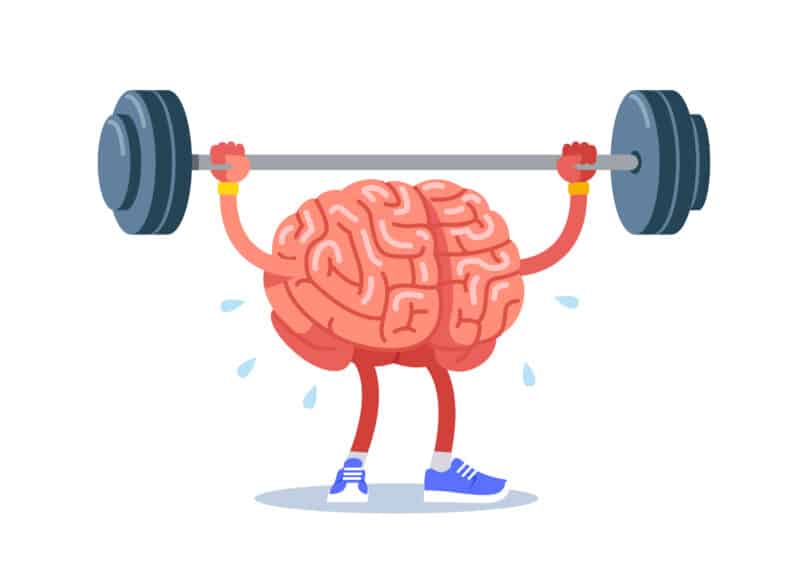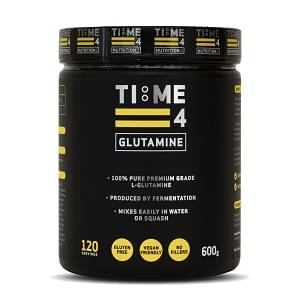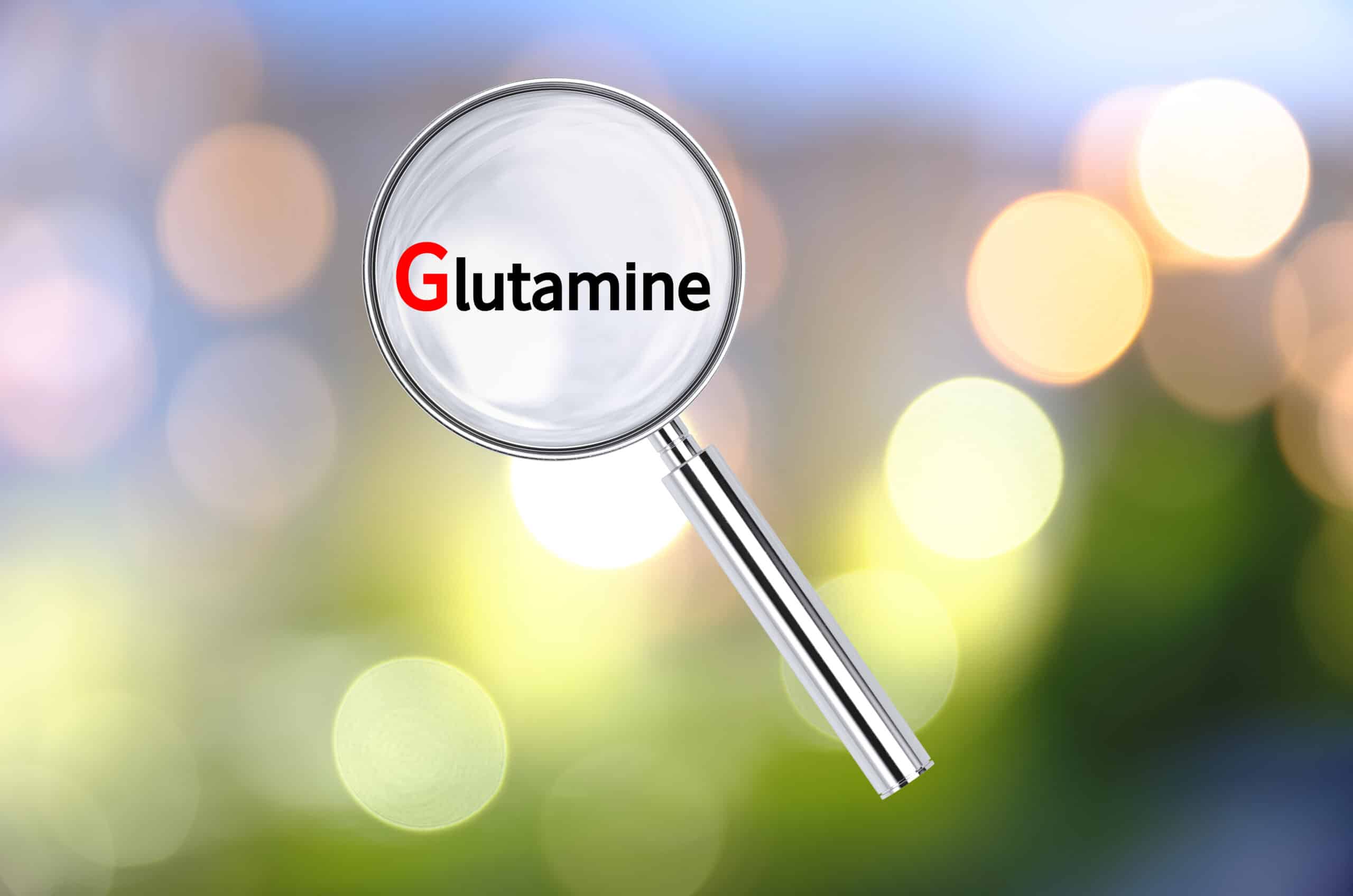What Is Glutamine?
What is Glutamine?
What is Glutamine? – An Overview
(Click on Nutritional Terms and Reference Numbers in Blue for More Info)
A supplement you may be familiar with is glutamine. You may also have some understanding of the role it plays in building and maintaining muscle. However, the benefits of this somewhat less well-publicised of the commercially available supplements extend far beyond its role in muscle function, as it has been shown scientifically to enhance various aspects of health and performance.
These include, but are not limited to:
- Increasing muscle mass (1,2)
- Increasing strength and power (1)
- Reducing body fat (1,2)
- Increasing testosterone and IGF-1 levels (1)
- Increasing growth hormone levels (1,3)
- Decreasing cortisol levels (1)
- Enhancing recovery and decreasing muscle soreness after resistance training (4)
- Restoring immune function and reducing the immunosuppressive effects of heavy-load training (5)
- Enhancing carbohydrate storage during recovery from exhaustive exercise (6)
- Helping to maintain a healthy gut (7)
- Enhancing brain health (8)
Here at Time 4 Nutrition, we pride ourselves on employing the findings of the latest cutting-edge research to produce the most effective and innovative products. In this article, we are going to highlight some of that research and explain how there’s a lot more to Time 4 Glutamine than you may think.
What’s in Time 4 Glutamine?
Time 4 Glutamine contains only 100% pure premium grade L-Glutamine. As look at this substance in-depth, and the research that supports its use, you’ll begin to see why Time 4 Glutamine is such a great product and how it may benefit you.

What is Glutamine?
Glutamine is an amino acid. In fact, it is the most abundant amino acid in the human body. It makes up approximately 60 percent of our skeletal muscle, and while it is perhaps best known for its important role in protein synthesis, the function of the immune system, and gut health, it actually plays multiple roles in the maintenance of a variety of cells and organs. For example, it serves as a source of fuel for cells found in the gut, kidneys, liver, pancreas, nerves and immune system. It also performs important roles in nitrogen balance and transport, regulation of glucose metabolism, and acid base homeostasis.
Along with the amino acids, cysteine and glycine, glutamine forms glutathione, the body’s master antioxidant, which plays an important role in combating oxidative stress. This is essentially an imbalance between the production of free radicals and the ability of the body to counteract or detoxify their harmful effects through neutralisation by antioxidants.
Oxidative stress has been associated with several chronic illnesses including diabetes, cancer and cardiovascular disease. It is also believed to contribute to the development of Parkinson’s disease. One of the markers of oxidative stress is the depletion of the glutathione (GSH), which may occur early in the development of Parkinson’s disease.
Muscle tissue is a major site of glutamine production, where it forms the anabolic precursor for muscle growth. It is referred to as a ‘conditionally essential amino acid’. This means that although the body can synthesise it from other amino acids, under certain conditions, such as illness, surgery, stress and periods of intense training, the glutamine needs of our body may exceed its ability to produce it and so it must be obtained from dietary sources. The greatest amounts are found in animal products, such as eggs and beef, due to their high protein contents. However, some plant-based foods also contain considerable amounts, such as tofu and corn.
Like many other amino acids, glutamine exists in two different forms know as L-glutamine and D-glutamine.
Although almost identical, they do have a slightly different molecular structure. While D-glutamine appears to be relatively unimportant in living organisms, L-glutamine is the form found in foods and supplements, as it is used to make proteins and perform many roles in the body.
Exercise

How does exercise affect glutamine levels?
Plasma glutamine levels increase in response to both prolonged and high intensity exercise. This is followed by a significant decrease during the post-exercise recovery period. Several hours of recovery are then required to restore glutamine to pre-exercise levels. Precisely how long this takes, will depend on the intensity and duration of the exercise (14).
If recovery between exercise bouts is inadequate, the acute effects of exercise on plasma glutamine levels may be cumulative, resulting in low plasma glutamine levels, which may require a period of prolonged recovery to address. Athletes suffering from the overtraining syndrome appear to maintain low plasma glutamine levels for months or even years. This has important implications for their health and function, particularly with regard to the gut and the cells of the immune system, which may be adversely affected (14).
Can glutamine supplementation increase muscle mass and improve performance?
Hakimi and colleagues (1) investigated the effects of glutamine supplementation on performance, and hormonal changes during an 8-week resistance training program in non-athlete male students. The study participants were randomly divided into a glutamine supplementation (GL) group, and a placebo (PL) group. Each group was given either glutamine or a placebo in a double-blind manner to be taken orally for eight weeks. GL and PL groups performed the same weight training program 3 days per week for 8 weeks. This consisted of 3 sets of 8 repetitions at 80% of their 1RM.
The results showed that while both groups increased their performance, the GL group showed significantly greater increases in upper and lower body strength and explosive muscular power, when compared to the PL group.
Can glutamine improve post-exercise recovery?
The importance of optimising post-exercise recovery is summed up by the saying: “You can only train as hard as you can recover”. This is where glutamine can provide another important benefit for those engaged in demanding exercise, as it has been shown to enhance post-exercise recovery in a number of ways:
A study by Legault and colleagues (4) investigated the effects of L-glutamine supplementation on quadriceps muscle strength and soreness ratings following eccentric exercise. Sixteen healthy participants participated in a double-blind, randomized, placebo-controlled crossover study. Supplement conditions consisted of a placebo (maltodextrin) and L-glutamine + maltodextrin) ingestion once per day over 72 hr. Knee extensor peak torque and muscle soreness were measured before, immediately following, 24, 48, and 72 hr post-eccentric exercise.
The results showed that supplementation with L-glutamine resulted in faster recovery of peak torque immediately after and 72 hrs postexercise and diminished muscle soreness following eccentric exercise.
Córdova-Martínez et al., (13) investigated the effects of oral L-glutamine supplementation on muscle damage in a group of players of a mainly eccentric sport discipline such as basketball. Participants were supplemented with 6g/day of glutamine (G group) or placebo (P group) for 40 days in a crossover study design (20 days with glutamine + 20 days with placebo and vice versa). The results showed that the glutamine supplemented group experienced less muscle damage in comparison to the placebo. In addition, the circulating levels of the catabolic hormone cortisol did not increase at the end of the study in the glutamine supplemented group.
Other studies have reported similar beneficial effects of glutamine supplementation on recovery. For example, Street et al., (19) found that glutamine supplementation was effective in attenuating strength loss and muscle soreness following eccentric exercise-induced muscle damage.
An important aspect of recovery is replenishing our fuel stores, particularly carbohydrate stores.
Botwell et al., (6) investigated the efficacy of glutamine in promoting whole body carbohydrate storage and muscle glycogen resynthesis during recovery from exhaustive exercise. Subjects completed a glycogen-depleting exercise protocol, then consumed 330ml of one of three drinks, 18.5% glucose polymer solution, 8g glutamine in 330ml glucose polymer solution, or 8g glutamine in 330ml placebo, and also received a primed constant infusion of glucose for 2 hours.
Plasma glutamine concentration was increased after consumption of the glutamine drinks. In the second hour of recovery, whole body glucose disposal was increased by 25% after consumption of glutamine in addition to the glucose polymer. Oral glutamine alone promoted storage of muscle glycogen to an extent similar to oral glucose.
Hormones

Does glutamine affect hormone levels?
A number of studies have highlighted the positive effects of glutamine supplementation on hormone secretion.
For example, the study by Hakimi et al., (1) on the effects of glutamine supplementation on performance and hormonal responses in non-athlete male students during an eight week resistance training, found that glutamine supplementation not only provided greater increases in upper and lower body strength, explosive muscular power than a placebo, but also greater increases in the muscle building hormones testosterone, growth hormone and insulin-like growth factor 1 (IGF-1) when compared to the PL group. In addition, levels of the catabolic hormone, cortisol, were significantly reduced in the glutamine group. Accompanying these changes were increases body mass and fat-free mass and a reduction in body fat.
Westbourne (3) investigated the effect of glutamine supplementation on plasma glutamine, bicarbonate, and circulating growth hormone concentrations. The results showed that ninety minutes after glutamine administration both plasma bicarbonate concentration and circulating plasma growth hormone levels were elevated.
Can glutamine improve immune function?
One of the most important functions of glutamine is its role in the immune system, which can become compromised when sufficient amounts are unavailable. Research shows that the rate of glutamine consumption by immune cells is similar or greater than glucose, as it is an essential nutrient for lymphocyte proliferation and cytokine production, macrophage phagocytic activities, and neutrophil bacterial killing (10).
A review by Calder and Yaqoob (9) on glutamine and the immune system noted that plasma and skeletal muscle glutamine levels are lowered by sepsis, injury, burns, surgery, endurance exercise and in the overtrained athlete. The lowered plasma glutamine concentrations are most likely the result of demand for glutamine by the liver, kidney, gut and immune system exceeding the supply from the diet and from muscle. The authors suggest that the lowered plasma glutamine concentration contributes, at least in part, to the immunosuppression which accompanies such situations
Glutamine has been given to patients following surgery, radiation treatment, bone marrow transplantation and suffering from injury, which helped to maintain immune function. In fact, the provision of glutamine to patients following bone marrow transplantation resulted in a lower level of infection and a shorter stay in hospital than for patients not receiving glutamine.
While glutamine supplementation has been shown to improve the immune function of sick and injured individuals, does it work with healthy athletes?
A study by Song et al., (5) helped to answer this question, as it sought to determine whether supplementation with glutamine alters immune function in athletes during heavy load training. 24 athletes were randomly assigned to either an experimental group or a control group. The study participants exercised using heavy training loads for 6 weeks. Those in the experimental group took glutamine orally once a day beginning 3 weeks after initial testing, while athletes in the control group were given a placebo. Immune function was assessed by measuring various immunity markers. The results of the study showed that supplementation with glutamine improved several aspects of immunity including T-cell and NK cells. The authors concluded that glutamine supplementation may be able to restore immune function and reduce the immunosuppressive effects of heavy-load training.
The gut

Can glutamine improve gut function?
Gut function is often overlooked, particularly when considering performance, yet it plays an essential role in our ability to digest and absorb the nutrients we need to fuel our training and other functions necessary for health and performance. It also plays and major role in immunity.
A review by van der Hulst et al., (7) examined the complex role glutamine plays in maintaining a healthy, well-functioning gut. The authors noted that glutamine is an important nutrient for rapidly dividing cells in the gut, and when a lack of glutamine occurs, this results in functional disturbances in the digestive tract. One of the most important functions of the wall of gut is to provide a barrier between the inside of the gut and the rest of the body to prevent movement of bacteria and/or toxins from the gut into the blood stream. A lack of glutamine may result in deterioration of this intestinal barrier, thereby, reducing the body’s ability to prevent the passage of bacteria and toxins into the blood. Sometimes this is condition is referred to as ‘leaky gut syndrome’.
Rao and Samak (11) suggest that barrier disruption and diffusion of noxious substances are known to induce mucosal inflammation and tissue injury. Such disruption of gut barrier function plays a crucial role in the development of numerous gastrointestinal diseases such as inflammatory bowel disease (IBD), irritable bowel syndrome (IBS), and coeliac disease. In the small bowel mucosa, glutamine is a unique nutrient providing fuel for metabolism, regulating cell proliferation, repair and maintaining the gut barrier functions.
The benefits of glutamine for a healthy gut are not just related to its role in maintaining the tissue of the gut, but also extend to ensuring a healthy balance of bacteria. A review by Perna et al., (12) investigated the efficacy of glutamine and its effect on gut microbiota. The results showed that glutamine could affect gut microbiota via different mechanisms, such as helping to balance the ratio of certain bacteria, reducing the intestinal colonisation of certain parasites and bacterial overgrowth, and increasing the production of secretory immunoglobulins A (SIgA) and immunoglobulin A+ (IgA+) cells in the gut. These are antibodies that play a critical role in intestinal immunity.
Brain health

Can glutamine improve brain health?
A number of studies have demonstrated the importance of glutamine for brain health and function. For example, Albrecht et al., (8) suggest that glutamine (Gln) is found abundantly in the central nervous system (CNS), where it participates in a variety of metabolic pathways. Its major role in the brain is that of a precursor of the neurotransmitter amino acids. These are the the excitatory amino acids, glutamate (Glu) and aspartate (Asp), and the inhibitory amino acid, γ-amino butyric acid (GABA). Excitatory neurotransmitters excite or stimulate a nerve cell, making it more likely that a nerve impulse will continue to move from nerve cell to nerve cell. Inhibitory neurotransmitters, such as GABA, on the other hand, decrease the likelihood that the neuron will transmit an impulse.
GABA’s inhibitory effect reduces brain activity and so promotes relaxation. Low levels of GABA in the brain can cause an individual to feel overstimulated, resulting in tense muscles, a sense of restlessness, depression, anxiety, and insomnia. The authors also note that disturbances of Gln metabolism and/or transport are associated with different pathological conditions of the brain including epilepsy.
A study by Chen and Herrup (15) highlighted the ability of glutamine to protect nerve cells against damage. The results showed that raising levels protect nerve cells against amyloid peptide, a substance involved in the development of Alzheimer’s disease (AD), and reduce inflammation.
There is also some evidence to suggest that glutamine supplementation may improve the learning ability and memory (16).
Additional health benefits of glutamine supplementation
Mansour and colleagues (2) investigated the effects of glutamine supplementation on cardiovascular risk factors in patients with type 2 diabetes. Sixty-six patients between the ages of 18 and 65 years were randomised to receive glutamine or placebo, in a double-blind, placebo-controlled trial during a 6 week treatment period. The results showed that glutamine supplementation not only resulted in a significant reduction in waist circumference and a tendency for an increase in fat-free mass, but also a downward trend in systolic blood pressure. In addition, fasting blood glucose (mmol/L) concentration significantly decreased after the 6 week intervention. The authors concluded that the 6 week supplementation with glutamine markedly improved a number of cardiovascular risk factors, as well as body composition, in patients with type 2 diabetes.
The benefits of glutamine supplementation do not appear to be reserved for the young and athletic. A study Amirato et al., (18) investigated the effects of oral L-glutamine (Gln) supplementation in control of glycaemia, oxidative stress, and strength/power of knee muscles in elderly women. Physically active (n = 21) and sedentary (n = 23) elderly women aged 60 to 80 years were enrolled in the study. The results showed that supplementation with Gln, improves strength and power of knee muscles and glycaemic control, particularly when associated with exercise. In addition, GLN supplementation boosted plasma antioxidant capacity (glutathione).
Conclusion
Science clearly demonstrates the importance of glutamine. Not only does it make up approximately 60 percent of our skeletal muscle, but it also plays a vital role in many functions of the body necessary for optimal health and performance, ranging from immunity and gut health to the development and maintenance of muscle mass. However, during various catabolic states, such as infection, surgery, trauma, and the demands of intense exercise, glutamine balance is placed under stress, and the body’s reserves, particularly in the skeletal muscle, become depleted. If recovery between exercise bouts is inadequate, the acute effects of exercise on plasma glutamine level may be cumulative, resulting in chronically levels that require prolonged recovery to address. Although the body can produce glutamine, during these demanding times our need may exceed the body’s ability to provide it, and so it must be obtained from dietary sources. This is where Time 4 Glutamine can play an important role in your nutrition strategy. It provides you with 100% pure premium grade L-Glutamine. It is unflavoured and mixes easily so can be added to Time 4 Pre-Workout, Time 4 Recovery, Time 4 Whey Protein or any of the powdered products from our range. If you consume a plant-based diet, you can rest assured that Time 4 Glutamine is made by a fermentation process and is registered by the Vegan Society.

